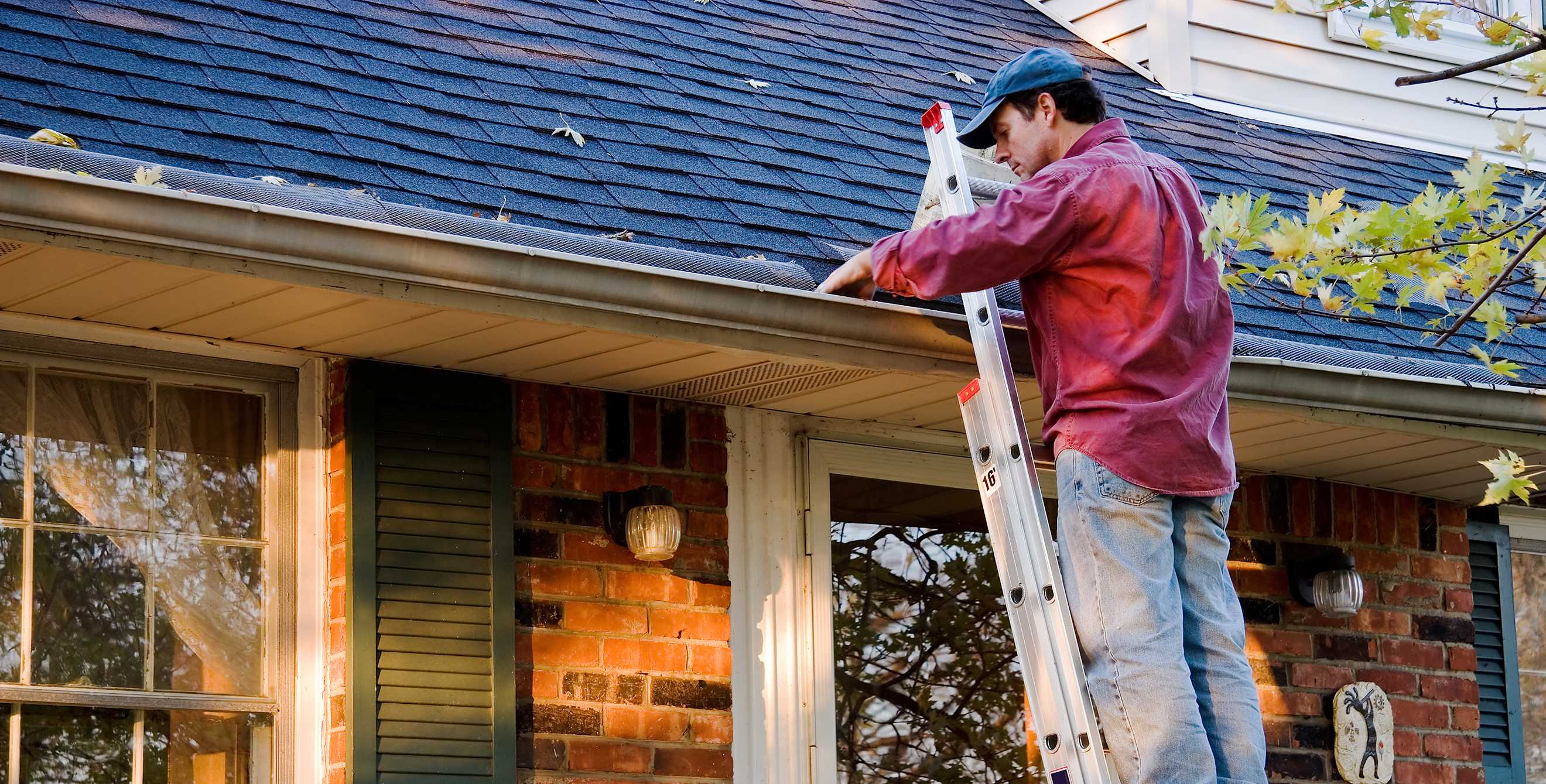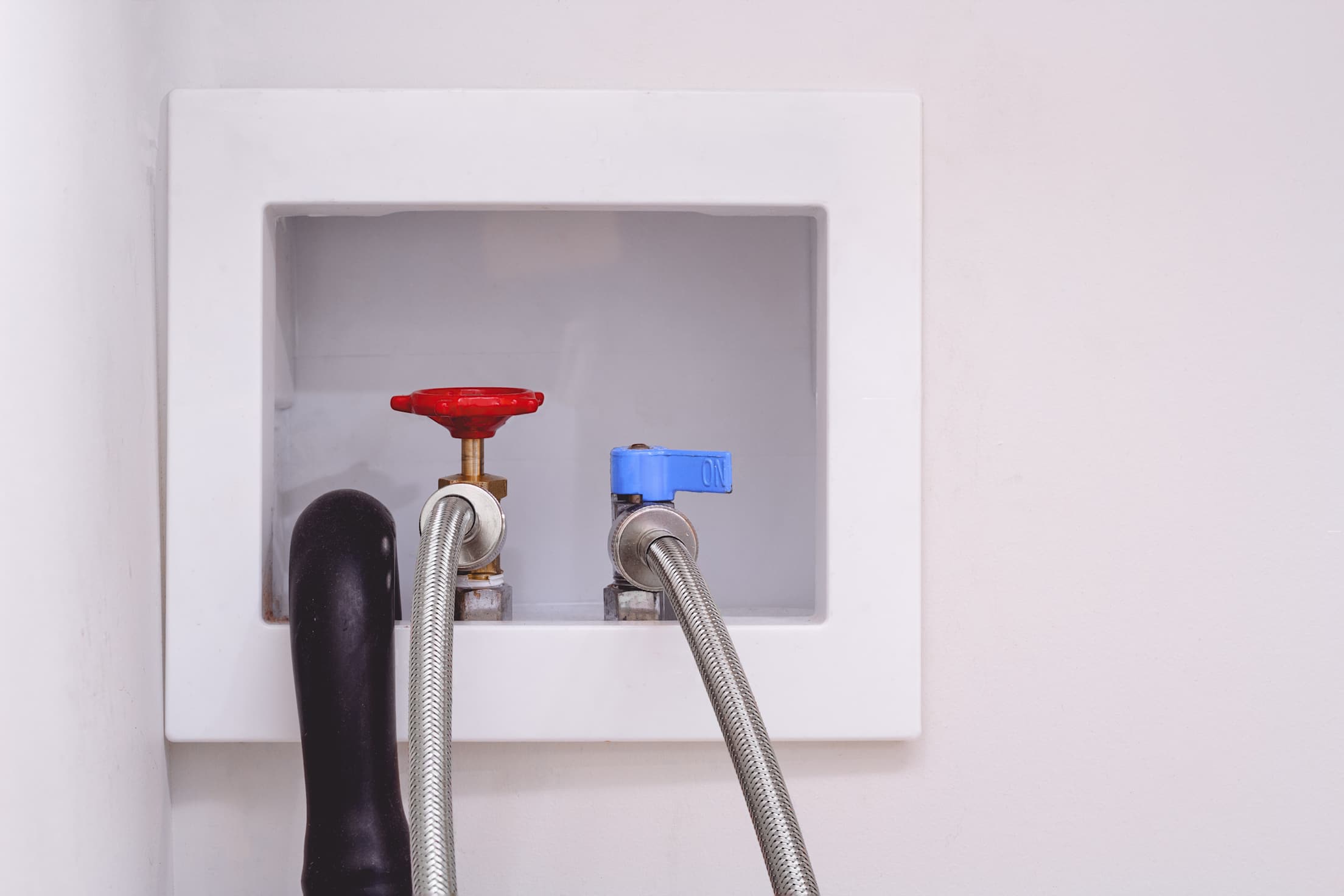
How to Prepare Your Home for Winter
Here are the steps you can take to keep yourself and your possessions from getting soaked.

With winter comes cold, wet weather and a rising risk of water damage to your home. Though there’s no way to guard against every problem, you can take steps to save yourself—and your possessions—from getting soaked. If your home has a weakness, water will find it. Your job is to fix it first. Here’s how.
Prevent frozen pipes.
Broken and frozen pipes are the No. 3 cause of home insurance claims in the United States. (Wind, hail, fires, and lightening have the dubious distinction of topping the list.) Guard against these problems by insulating all exposed pipes and setting your thermostat no lower than 55 degrees when you’re away. Also, make sure you know how to turn off your main water line quickly if necessary.
Clean out gutters.
Clogged gutters and downspouts allow water to pool where it shouldn’t, leading to leaky roofs, cracked foundations, and other costly damage. Clean them every fall and spring. If you have a sump pump, make sure it is also clear of debris and in good working order.
Seal up gaps.
A well-insulated home can be up to 15 percent cheaper to heat, according to an Environmental Protection Agency estimate. Weatherstrip doors and windows to prevent drafts, and inspect the walls around fireplaces, dryer vents, and outdoor faucets for troublesome cracks. Check caulking around doors, windows, and cables. Look for cracks in your walls and stains on your ceilings—discolored paint may be a sign that your roof is leaking.
The older your home’s doors and windows are, the more likely they are to be a source of air leaks in a home, but approximately half of all air leaks occur through floors, ceilings, and outside walls.
Crawl spaces, basements, and attics are also notorious for air leaks. Feel for cold air around electrical sockets and around the door into an attached, unheated garage.

Upgrade laundry hoses.
A burst washing-machine hose can flood a room fast. To stay ahead of the problem, replace rubber hoses every three years, or swap them for sturdier steel-reinforced hoses, which cost less than $20—a small price to pay for peace of mind.
Keep ice at bay.
When snow melts and then refreezes on your roof, the resulting ice dams weaken the roof ’s structure and pose a serious danger to anyone walking under the eaves when the ice eventually falls. Ice damming can be caused by a poorly insulated or improperly ventilated attic—which a licensed contractor can help you fix.
Ready your furnace.
Ensure your furnace is in safe, working order when you need it. While you can clean the furnace and change its filters yourself to improve air quality and energy efficiency, a professional technician can complete a full inspection and service, including:
- checking the thermostat to ensure it’s in working condition;
- covering the AC condenser;
- clearing the heat exchanger;
- lubricating and cleaning the blower motor;
- testing the igniter switch;
- and inspecting the exhaust vent pipe and carbon monoxide detectors.
Smart Tip: Now’s a great time to install a smart thermostat. The device will learn from your preferences, adapt according to the seasons, and conserve energy. AAA Smart Home Security can help you replace your old thermostat.
Confirm your coverage.
It pays to know your policy’s limits. If you live in a storm-prone area, you may need to consider special coverage for damage caused by rising floodwaters. To find the coverage that’s best for your needs, speak with your homeowners or renters insurance agent.
Exceptional coverage. Expert service. Extra savings.
AAA Auto, Home, and Life Insurance